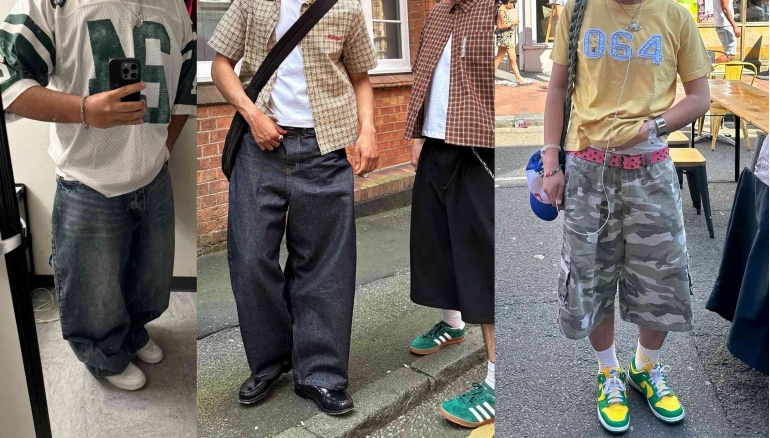It starts innocently enough. You’re on TikTok, scrolling through your FYP to pass the time. Suddenly, a fashion icon pops up, showing off their outfit of the day, exuding edgy charm on social media. Intrigued, you click on their profile, find a distinct aesthetic, hop on Pinterest For more outfit inspiration. Before you know it, you’re deep in a rabbit hole of influencers, TikTok trends, Instagram bubbles, and algorithms. The next thing you know, your shopping cart is filled with items you don’t need but suddenly can’t live without.. Sound familiar? Congratulations—you’ve been caught in the grip of FOMO, and it’s stealing your authentic personal style.
FOMO: The Silent Thief
Fear of Missing Out is not a new thing, but social media has weaponized it. Gen Z lives in a world where trends come and go faster than a BeReal notification. Last year was Office Siren, yesterday was Brat Summer Aesthetic, today it’s Balletcore, and tomorrow? Who knows? The pressure to stay relevant and have a look before it becomes basic is suffocating. In the process, personal taste and style are getting lost.
Remember when personal style meant personal? When you had to build your closet piece by piece, finding a cute sheer top or a classic leather jacket after strolling around the mall? Before the “For You Page” dictated what was cool? Social media has created a homogenized aesthetic. Everyone’s chasing the same outfits—baggy jeans, oversized jerseys, and Salomon sneakers—posing in the same locations, editing their photos with the same presets, and posting them under the same trending song. It feels like individuality has been traded for virality, with judgment waiting for anyone who dares to dress differently.
The Algorithm Doesn’t Care About You
Here’s the harsh truth: social media platforms thrive on sameness. The algorithm’s job is to show you what’s popular—again and again. If a particular post gets likes, comments, and shares, it’s pushed into everyone’s feed. This creates a loop where everyone starts dressing, posing, and even thinking alike. The result? The line between inspiration and imitation gets blurry.
This relentless exposure to trends can mess with your sense of self. You might genuinely love your baggy jeans and beaded necklaces, but when they don’t match what’s trending, the algorithm whispers, “You’re falling behind.” So you cave and buy into the latest microtrend—only to discover it’s outdated by the time it arrives at your door.
Fast Fashion’s Love Affair with FOMO
Fast fashion brands have perfected the art of exploiting FOMO, churning out cheap, disposable clothing at breakneck speed. Add TikTok’s #SheinHaul and #ShopeeHaul crazes, and the focus shifts from quality to quantity—wardrobes become revolving doors for clothes that barely last a season.
But this cycle isn’t just tough on your wallet; it’s devastating for the planet. Fast fashion’s environmental impact is staggering, and the social costs are just as grim. Behind every trendy piece is a chain of exploited workers and overflowing landfills—hidden prices we pay for the latest styles.
When FOMO Turns to Judgment

FOMO doesn’t just erode personal style; it fosters judgment. In a trend-driven culture, people who dare to go against the grain often find themselves mocked or dismissed. Take the so-called “skena police” (a term popular in Indonesian street fashion communities)—they’ll dismiss skinny jeans as outdated or mockingly compare them to chicken legs.
But style is about more than following trends; it’s about how you wear and style something. Imagine pairing skinny jeans with a bold mesh top under a structured leather jacket, chunky metallic jewelry, and studded ankle boots. Add messy, tousled hair, and voilà—effortlessly rebellious, like something out of Jean Paul Gaultier’s 1990s punk-inspired collections. Yet, the FOMO-driven crowd often misses the point: anything can be stylish if styled right, why box it in?









